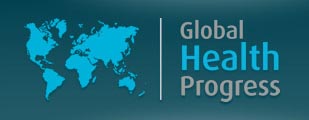Global Health Progress’ recently released report, Innovative Solutions to Improving Health in India, summarizes how the organization is committed to building sustainable, innovative solutions to secure access to healthcare for all Indian communities.
The report notes that access to healthcare remains problematic in parts of India, especially in rural areas. For instance, forty percent of the country’s primary healthcare centers are understaffed and fewer than one in five have a telephone connection. Nearly one million Indians die every year due to inadequate healthcare facilities and lack of access to healthcare. Without qualified health care professionals and fully equipped health facilities, programs to assist patients with medicines (both patented and unpatented) are of little use.
Additionally, chronic diseases are on the rise in India and infectious diseases continue to afflict Indian patients. India has the highest prevalence of tuberculosis (TB) in the world, 60 percent of the world’s heart disease, and malaria has staged a comeback after its near eradication in the 1960s. An estimated 40.9 million Indian patients suffer from diabetes, the highest number in the world, and 30 million people are infected with Hepatitis B Virus (HBV).
Global Health Progress recognizes this serious situation and calls on joint action among local leaders and diverse global stakeholders to implement sustainable, innovative solutions. Fortunately, Indian communities have successful and long-standing collaborations with biopharmaceutical companies and other international partners.
The full report, which features examples of India’s successful and long-standing collaborations with international partners, is available here:
http://globalhealthprogress.org/mediacenter/index.php/global-health-progress-report…
Via EPR Network
More Healthcare press releases

